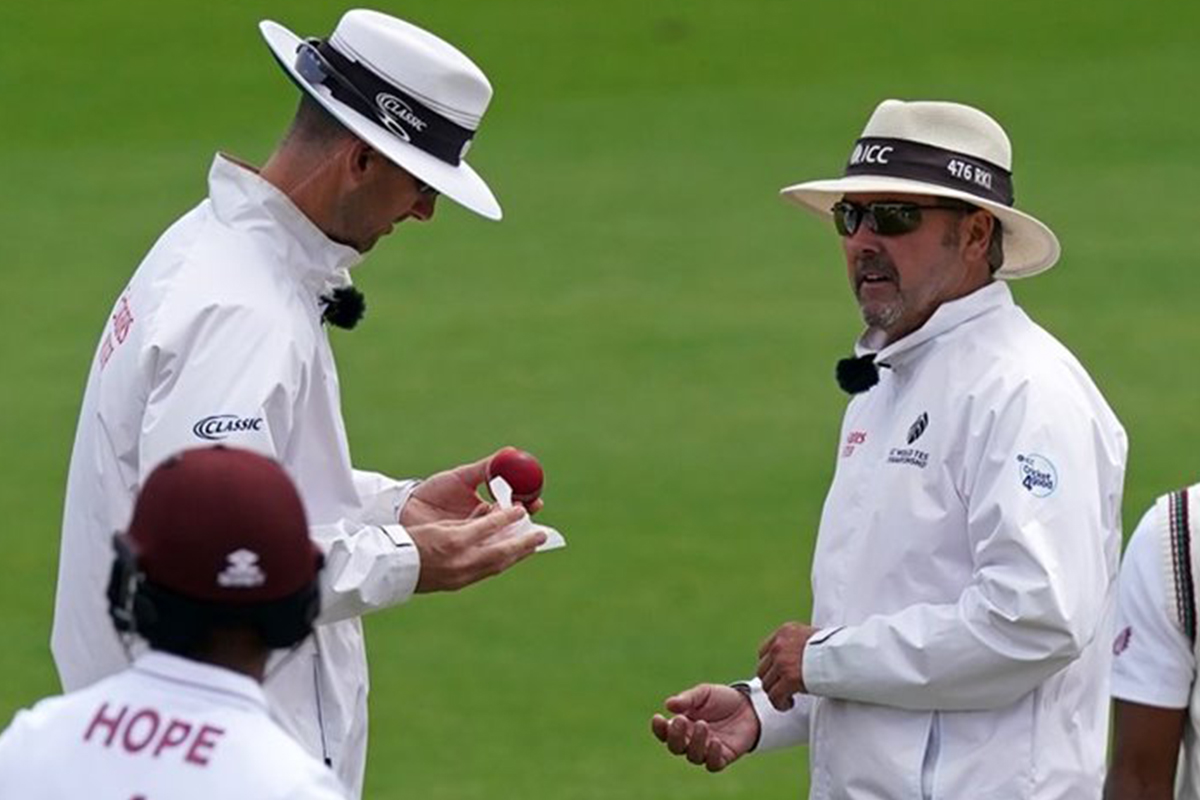The Marylebone Cricket Club (MCC) made a few changes to its Code of Laws pertaining to international cricket in March, which will come into effect from October 1, 2022. MCC is the owner of Lord’s Ground and the guardian of the Laws of the game.
The New Indian looks at some of the prominent changes which will have a huge impact on the game of cricket:
1) The act of running out the batter at the non-striker’s end by the bowler while running up – often called Mankading – has been moved from Law 41 – Unfair Play to Law 38 – Run-out.
This is the most significant change which will eliminate a welter of controversies. Now, if a bowler executes ‘Mankading’, this will be deemed as a ‘run-out’ and will not be considered against the ‘spirit of cricket’. The term ‘Mankading’ came into existence in 1948 after former India captain Vinoo Mankad ran out Australian wicketkeeper-batter Bill Brown at the non-striker’s end.
2) The new laws will not permit the use of saliva on the ball, which also removes any grey areas of fielders’ eating sugary sweets to alter their saliva to apply to the ball.
The onslaught of COVID-19 prompted the MCC to ban saliva on the ball. Using saliva will now be treated the same way as any other unfair method of altering the condition of the ball.
3) The introduction of a new clause, Law 1.3, explains that replacements are to be treated as if they were the player they replaced, inheriting any sanctions or dismissals that the player has received in that match.
This means that now, if a player has snapped up a wicket before getting replaced, the dismissal will be added to the account of the new player replacing him.
4) Law 18.11 has now been changed so that, when a batter is out caught, the new batter shall come in at the end the striker was at, i.e. to face the next ball (unless it is the end of an over).
This means the new man coming in will take the strike even if the non-striker has changed ends while the ball is in the air.
5) From a pitch invader to a dog running onto the field, sometimes there is outside interference – if this is the case, and it has a material impact on the game, the umpires will call and signal Dead ball.
Till now, it was deemed legitimate if a run or boundary was conceded or dismissal was affected just before an interference. According to the new rules, it will be declared a dead ball from now on.
6) If a bowler throws the ball in an attempt to run out the striker before entering their delivery stride, it will now be a Dead Ball.
As per the new rule, if a bowler attempts to run a batter out before getting into the delivery stride, it will be declared a dead ball.
7) Law 22.1 is amended so that a wide will apply to where the batter is standing, where the striker has stood at any point since the bowler began their run-up, and which would also have passed wide of the striker in a normal batting position.
As yet, wide balls are determined based on where the batter changed his stance before the delivery was bowled. But now, the umpires will take into account where the batsman has stood in the crease at any point after the bowler began his or her run-up.
8) Until now, any member of the fielding side who moved unfairly, was punished only with a “dead ball’ – potentially cancelling a perfectly good shot by the batter. Given the action was both unfair and deliberate, it will now see the batting side awarded five penalty runs.
According to the new rule, the captain cannot alter his or her fielding position once the bowler has started the run-up. This rule was ushered in after taking into account the fact that there have been numerous instances when batters didn’t notice the last-moment changes in the field. Earlier, the umpires used to call dead balls in such circumstances, but as per the new law, five penalty runs would be given to the batting side.









